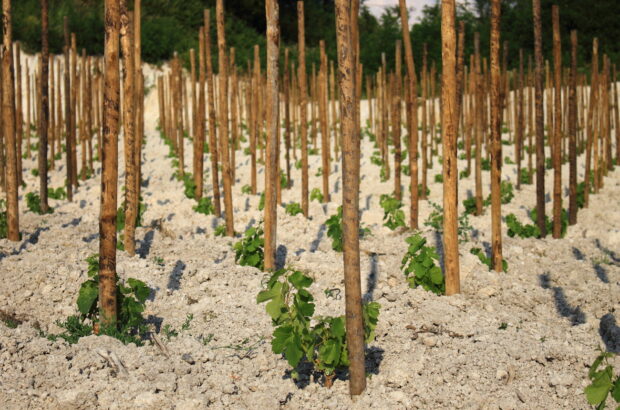Andrea Franchetti, one of the most talented and visionary Italian producers, has died at the age of 72 in Rome. In 30 years exactly, he positioned his superTuscan Trinoro among the top Italian references, producing a wine with stylish elegance and outstanding potential for ageing.
Franchetti’s Bordeaux blends were without the over-extractions that were on-trend in the 2000s, nor the excess of fruit following phenolic maturity. He followed a precise idea to produce classic wines for the long haul, able to express as much complexity as possible from their terroir.
But despite his classical leanings, Franchetti was one of the first viticulturists to bet on Cabernet Franc under the Tuscan sun, and in 2001 he was one of the pioneers of the rediscovery of Nerello Mascalese in Etna with his estate Passopisciaro. He also produced a great Tuscan white based on Sémillon; a rare sight.
A charismatic wine producer, Franchetti was memorable for his accuracy and awareness. Take, for example, his detailed vintage reports – considered an indispensable tool for his work. ‘Tonight, poetry lost a great wine producer and the world of wine, one of its poets,’ wrote Ursula Thurner, Franchetti’s PR manager for several years.
A background
Son of an American mother and an Italian father, Franchetti was raised in Rome in an environment surrounded by artists, including his uncle, American painter Cy Twombly. In 2016 he told Italian daily newspaper, Corriere della Sera, that he was able to finance the purchase of the crumbling property of Trinoro in Val d’Orcia by selling one of his uncle’s paintings.
Franchetti grew up with experimentation and research in his blood. At the age of 18, he left home to go to Afghanistan by bicycle, then moved to New York City in the East Village in the 1960s. He went on to open restaurants in both Rome and in Le Marche, eventually returning to New York in the 1980s to focus on importing the greatest Italian wines of the time. Names such as Argiano and Marchesi di Grésy grew with his business.
In the 1990s, Franchetti launched into the world of wine production. Leaving behind metropolitan life, he set out to restore the ruins of an ancient, fortified country house in the Val d’Orcia, a no-man’s land where Tuscany meets Lazio and Umbria without any previous wine tradition. He decided to plant his own vineyards and so left for Bordeaux, where he learned the art and philosophy of making wine from the great masters; winemakers such as Peter Vinding, Peter Sisseck, Alain Vauthier and Luc Thunevin. In 1991 he planted the first vineyards with clones brought from Bordeaux and in 1997, after a few years of experimentation, he produced the first vintage of Tenuta di Trinoro. It was immediately embraced by international wine critics and subsequent vintages continued to impress.
‘The Val ‘d’Orcia, suspended high between two mountains, resembles a large bowl of blue clay; beyond the mountains, the hillslopes plunge down to the Mediterranean or to the deep interior valleys. Air currents swirl madly about, with temperatures the most severe in all of central Italy; storms dance all around, and rains spill outside the bowl.’ – Andrea Franchetti.
The Sicilian venture
On a visit to Sicily in 2000, Franchetti was struck by the abandoned vineyards that climb the slopes of Mount Etna at an altitude of over 1,000m. He decided to start all over again and began to restore an old farmhouse with a cellar that would become the core of his new winery, Passopisciaro. One of the first to recognise the potential of individual terroirs composed of distinct lava flows, Franchetti introduced and promoted the concept of ‘Contradas’ following the model of the Burgundian cru.
Andrea Franchetti is survived by his daughter, Baldassarra, and his three sons, Cody, Benjamin and Giordano, who will now manage the estate.







